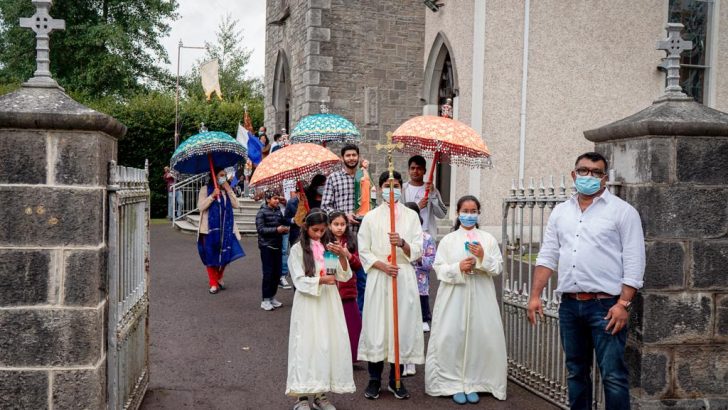Catholic migrant communities have higher levels of religiosity then ‘indigenous Irish’ and should be seen as a “resource for the future” of the Church, a University College Dublin (UCD) academic has said.
Professor of Migration and Social Policy Bryan Fanning of UCD told The Irish Catholic that religion in Irish society should not be viewed as “the enemy”, particularly in a society striving to accommodate diversity.
Prof. Fanning said: “Certainly churches should be looking to immigrants as a resource for the future, and it’s an argument against a version of conservativism that is narrowly anti-immigrant on the basis that it is supposedly fighting unwelcome social change.
“But if your idea of the good society includes one where religion is taken seriously and belief is taken seriously surely solidarity with migrants in some way, shape, or form should be part of that, at least in community worship and so on,” he insisted.
Regarding the idea of an increasingly diverse society, which is reflected in the CSO’s last census, Prof. Fanning underlines the fact ‘diversity’ does not just include ethnicity, but diversity in belief and viewpoint.
He said: “So just because somebody is a Muslim or a Christian, they may hold very different beliefs that are perhaps not necessarily captured or understood within secular debates about diversity: how you respond to immigration, liberalism, all of that.
“Religion can be very beneficial in life and for migrants in particular, in new places, it creates a sort of staging post from where people can integrate more broadly into the economy, contribute more broadly into society. Religion isn’t the enemy nor should it be regarded as such. If you have an overtly narrow, secular mood in the country then sometimes you get articles and points of view being expressed that are very, very intolerant, monocultural, xenophobic in a different kind of way. I would be one of the people who would be concerned that if we’re supposed to be treating Muslims with respect, why not treat Catholics with respect also? We need to be able to make diversity work but diversity includes not just diversity of language, or culture, what people eat, it also includes diversity of belief and diversity of Faith.”
Prof. Fanning continued saying that Catholic religious iconography should not be taken down from some public spaces – which has occurred in hospitals and schools – saying that efforts to “blot out the past” are “insensitive”, adding: “Pluralism requires us to treat religious minorities and others with respect and there are good models in Irish history for doing that.”


 Chai Brady
Chai Brady A Syro-Malabar community
prepares for a procession during the pandemic.
A Syro-Malabar community
prepares for a procession during the pandemic. 